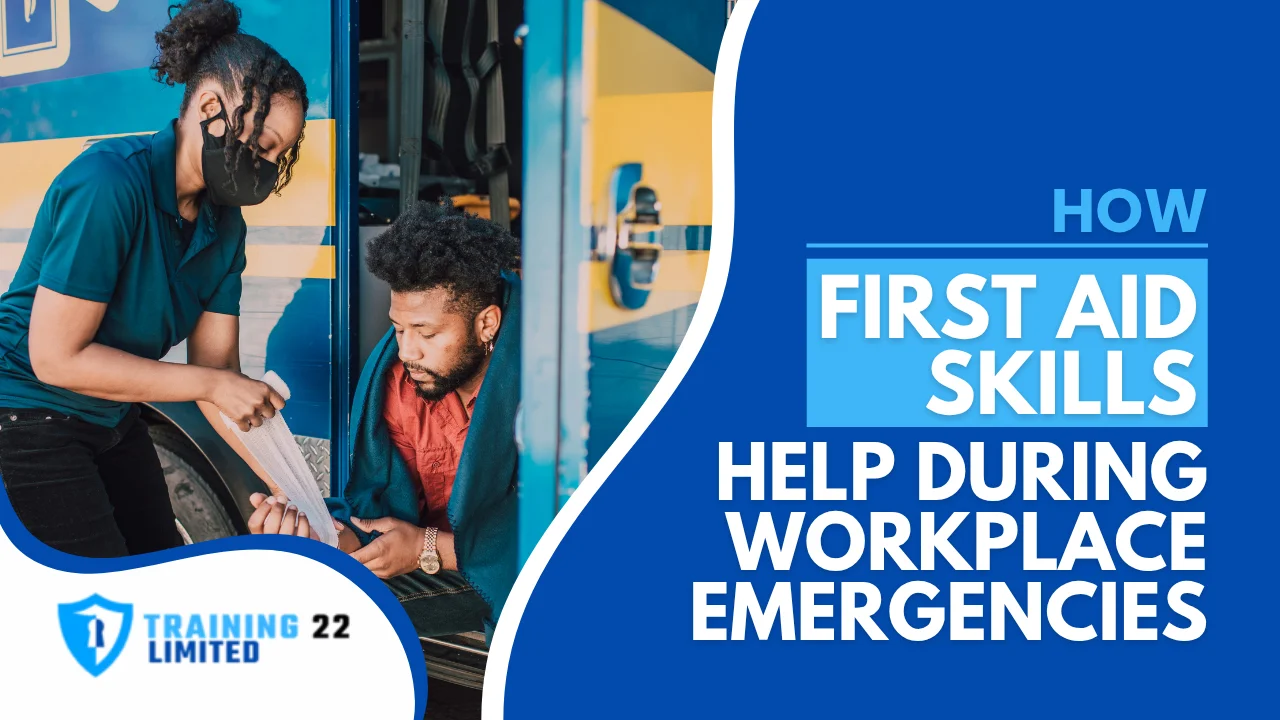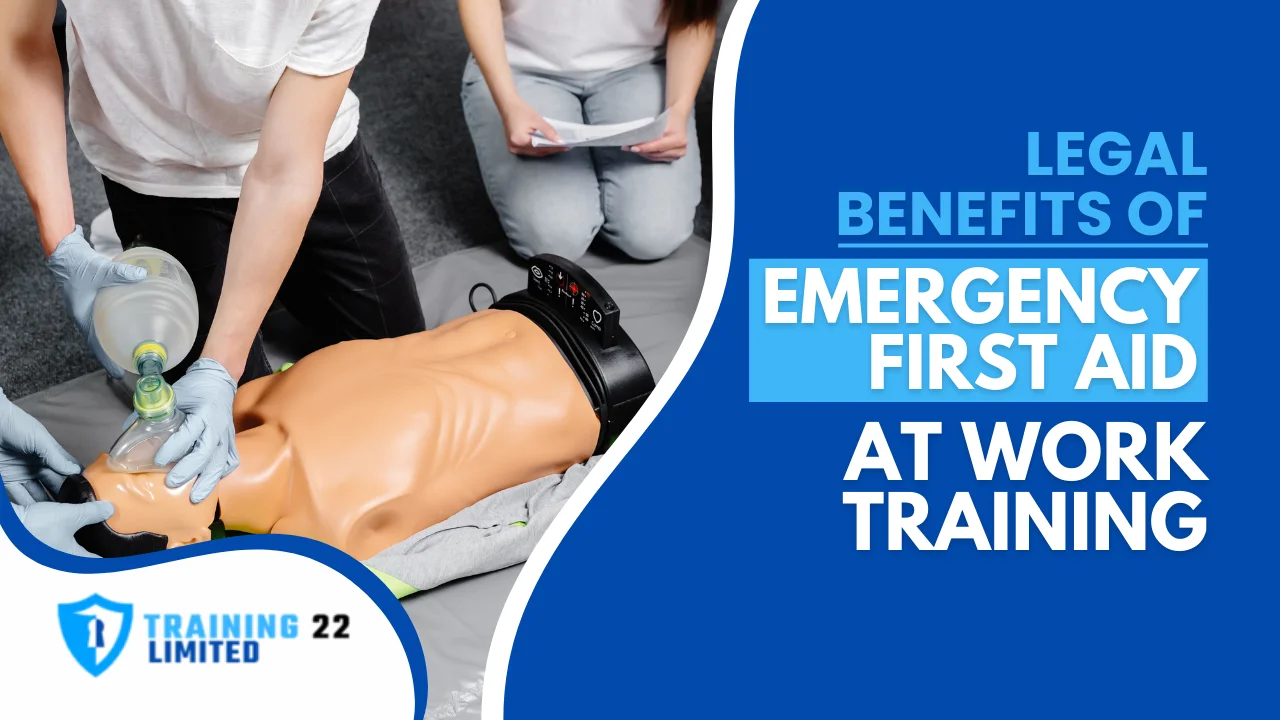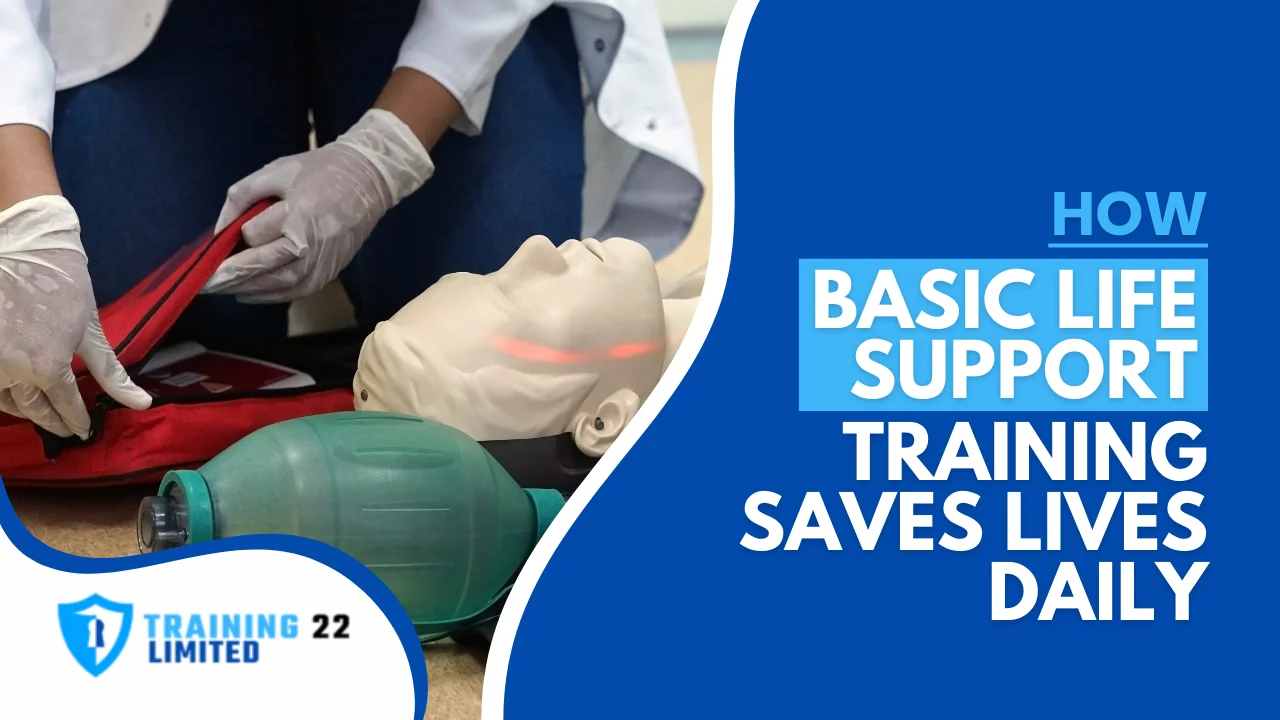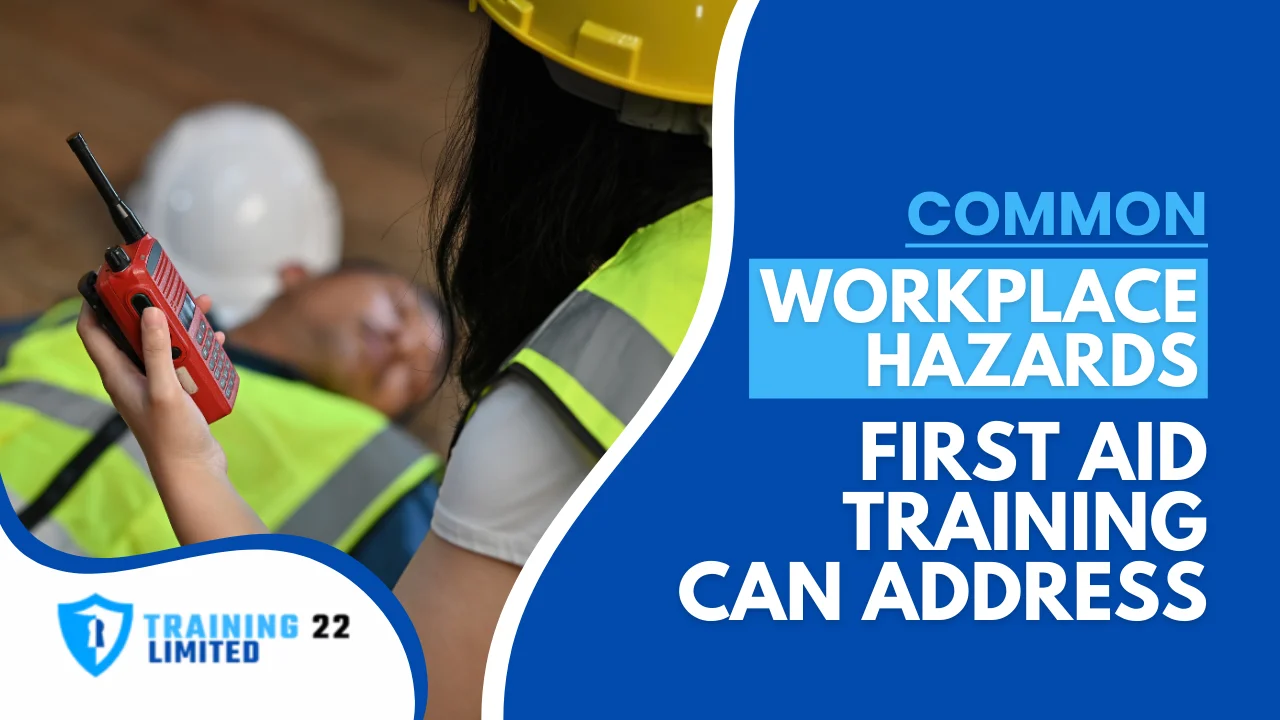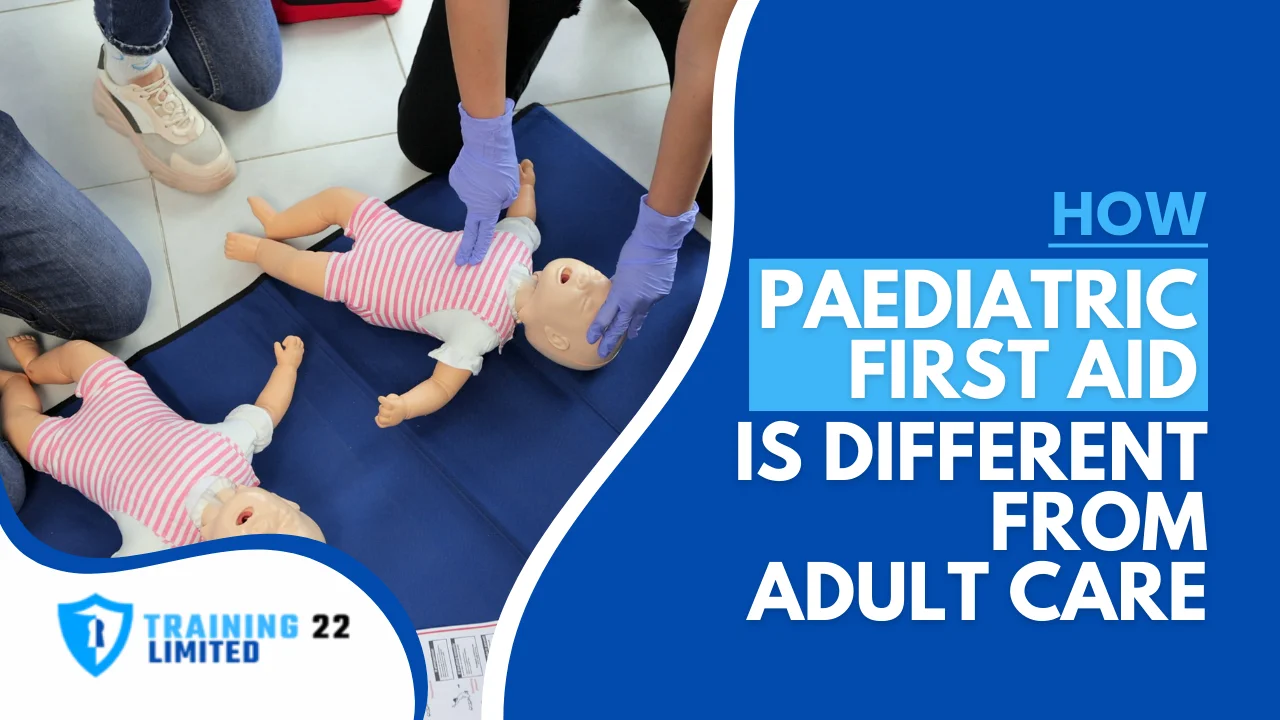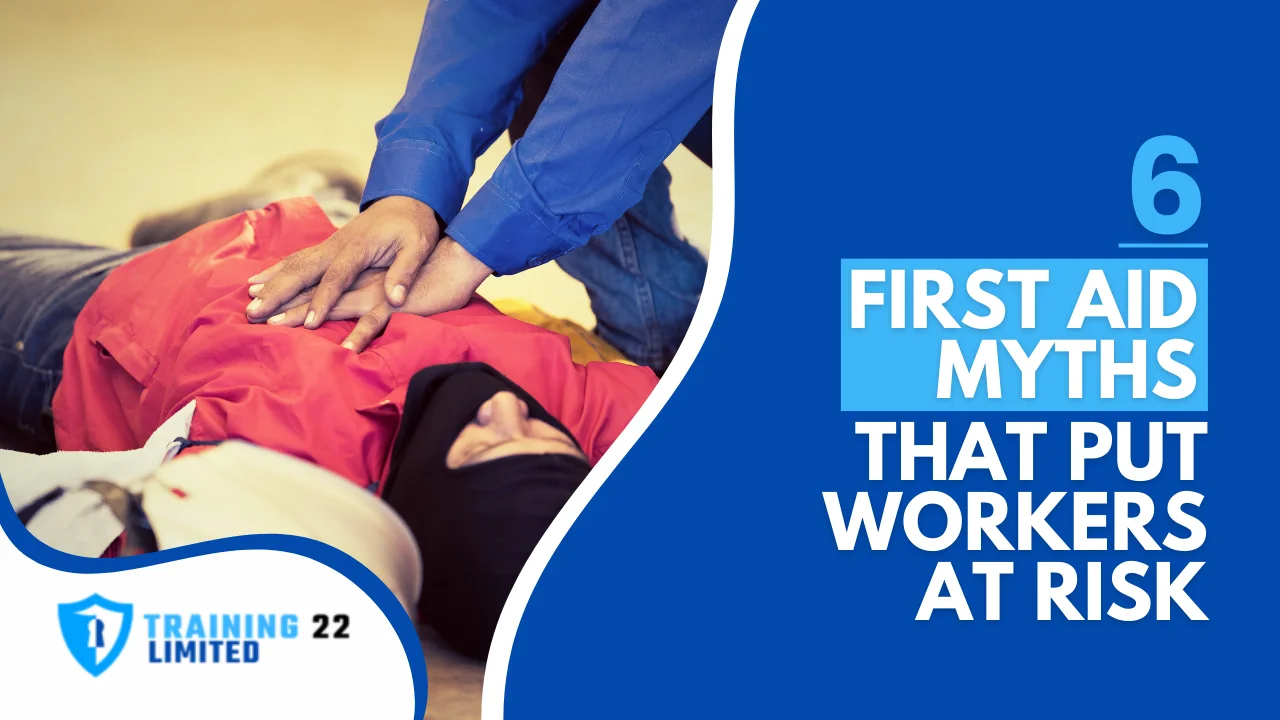Imagine you’re at your desk on a Tuesday morning, drinking coffee and checking emails. Suddenly, a colleague collapses nearby. Panic sets in. Do you freeze or take action?
In these moments, first aid training is crucial. In the UK, workplace injuries and health emergencies happen more often than many think. Whether it’s a heart attack, a fall, a burn, or an allergic reaction, knowing how to respond can save lives.
According to the Health and Safety Executive (HSE), hundreds of thousands of workplace injuries are reported each year in the UK. Many of these situations could have better outcomes with quick, trained responses. This is why emergency response training at work is so important.
Why Every Workplace Needs First Aid Training
Workplace accidents can happen anywhere, not just in construction sites or factories. Offices, shops, and schools all have risks. These can include slips, trips, machinery issues, or medical conditions like asthma and seizures.
If no one is trained, a small accident can become serious. Panic and confusion can make things worse, wasting valuable time. However, with basic training, employees can give immediate help to stabilise the situation until emergency services arrive.
Responding to emergencies at work needs quick action, knowledge, and staying calm. First aid training prepares staff to:
- Recognise signs of medical distress
- Respond calmly and confidently
- Provide immediate care while awaiting paramedics
- Use essential tools such as AEDs and bandages correctly
Investing in emergency first aid training for workplaces is not only a legal requirement in many industries but also shows that you care about your team. It demonstrates that you value their well-being, which can boost employee retention, morale, and workplace culture.
First Aid for Staff: The Essential Skills You’ll Learn
Taking a first aid course for staff doesn’t turn you into a doctor. It teaches you basic, life-saving skills that anyone can learn, no matter their job or background.
Some of the core competencies include:
- CPR and defibrillator use
- Managing bleeding and wounds
- Handling burns, choking, and seizures
- Identifying signs of stroke and heart attack
- Treating shock and unconsciousness
- Communicating clearly with emergency services
This training isn’t just theory; it’s practical and based on real-life situations. Professionals teach it, making it useful for everyone in any industry.
You will learn how to stay safe while helping others, so you don’t become another victim. The aim is to act quickly and wisely.
The Psychological Impact: Confidence in Crisis
First aid training has a big impact on how we think and react in emergencies. When we know what to do, we feel less scared and more confident. This change isn’t just about physical skills; it also changes how we think.
Trained staff can step up during the crucial first moments of an emergency. This not only helps the person in need but also calms others around them. As a result:
- Better team coordination during incidents
- Lower stress levels across the workplace
- Stronger morale and trust among colleagues
- Fewer long-term psychological effects from witnessing trauma
When people know how to help, they are more likely to take action instead of holding back. This is the kind of environment every employer should create.
Common Workplace Emergencies – And How First Aid Helps
Let’s look at a few real-world examples where first aid for staff makes a difference:
1. Sudden Cardiac Arrest
Using CPR and an AED right away can triple the chances of survival. Without help within four to six minutes, brain damage can happen.
2. Burns from Equipment or Chemicals
Cooling a burn immediately and covering it with a sterile dressing can prevent complications and limit scarring. Waiting too long can lead to infection, pain, and lasting damage.
3. Falls and Head Injuries
Quickly checking for consciousness and bleeding can help prevent further injury and prepare for paramedics. Knowing how to place someone in the recovery position is important.
4. Choking
A blocked airway can cause death in minutes. With first aid training, employees can perform back blows or abdominal thrusts effectively.
These situations require quick and informed actions, which are essential for emergency response at work.
Legal & Ethical Responsibility of Employers
UK employers must provide the right equipment, facilities, and staff for first aid according to the Health and Safety (First-Aid) Regulations 1981.
This means:
- Having trained first aiders on site
- Keeping first aid kits stocked and accessible
- Conducting regular risk assessments
- Providing refresher courses at recommended intervals
It’s not just about following the law; it’s also a moral duty. When lives are in danger, being ready is crucial.
Companies that ignore these responsibilities could face legal issues and, more importantly, put their employees at risk. Investing in Workplace Safety Training shows you care about your people.
How Training 22 Prepares You for Real Emergencies
At Training 22, we think everyone should learn skills to save lives. Our emergency first aid training for workplaces is hands-on, current, and based on real situations.
We offer:
- Workplace Safety Training for businesses across the UK
- Blended options, including Online and in-person health and safety training in the UK
- Certified courses that meet HSE guidelines
- Friendly, expert trainers who make learning accessible and engaging
We use real-life situations, hands-on activities, and Q&A sessions to make sure everyone feels empowered. We also give tips on reporting incidents and updating your emergency response plan.
Whether you’re learning first aid for the first time or brushing up on your skills, our courses help you respond confidently to workplace emergencies.
Empowering Staff with a Culture of Safety
First aid training is not only for individuals; it creates a culture. When staff learn how to handle emergencies, it encourages:
- A safer, more supportive workplace
- Proactive health and safety awareness
- Teamwork and shared responsibility
- Respect for health and well-being policies
Imagine a workplace where every employee feels confident, safe, and supported. First aid training can create this environment.
A safety-focused culture helps employees recover faster after incidents, reduces time off work, and can lower insurance costs. Businesses that prioritise safety attract better talent and keep employees longer.
Real Stories: First Aid in Action at Workplaces
Here are just a few examples of how trained staff have made a real difference:
Case 1: Quick Thinking Saves a Life
In a Birmingham warehouse, a team member collapsed. A colleague recognised the signs of cardiac arrest and quickly started CPR and used the AED. The person survived.
Case 2: Choking in the Office Kitchen
In London, a receptionist choked on food. A co-worker performed abdominal thrusts just in time. They had taken the course two weeks earlier.
Case 3: Fall in a School Corridor
In Manchester, a teacher slipped and fell during break, hitting her head. Another teacher put her in the recovery position and stayed with her until paramedics arrived. The school had trained with Training 22 a month before.
These stories aren’t rare – they happen every day. First aid saves lives, and Training 22 makes that possible.
How to Get Started with First Aid Training Today
Don’t wait for an emergency to see how important it is to prepare. If you’re a business owner, HR professional, or employee, you can help make a difference.
Steps to take:
- Identify the training needs in your workplace
- Contact Training 22 to explore suitable courses
- Choose from online, in-person, or blended formats
- Encourage colleagues to join – the more, the safer
- Schedule regular refreshers to maintain readiness
- Create or review your internal emergency protocols
Training 22 offers Workplace Safety Training to prepare you for any situation.
When Every Second Counts, Be the One Who Acts
Emergencies come without warning. With proper training, you can be ready. First aid is not just a skill; it’s a valuable tool at work.
If you want to handle workplace emergencies, take action now. Sign up for Training 22’s Emergency First Aid Training and help create a safer and stronger team.
Visit our homepage for information on online and in-person health and safety training in the UK. Start making your workplace safer today.
